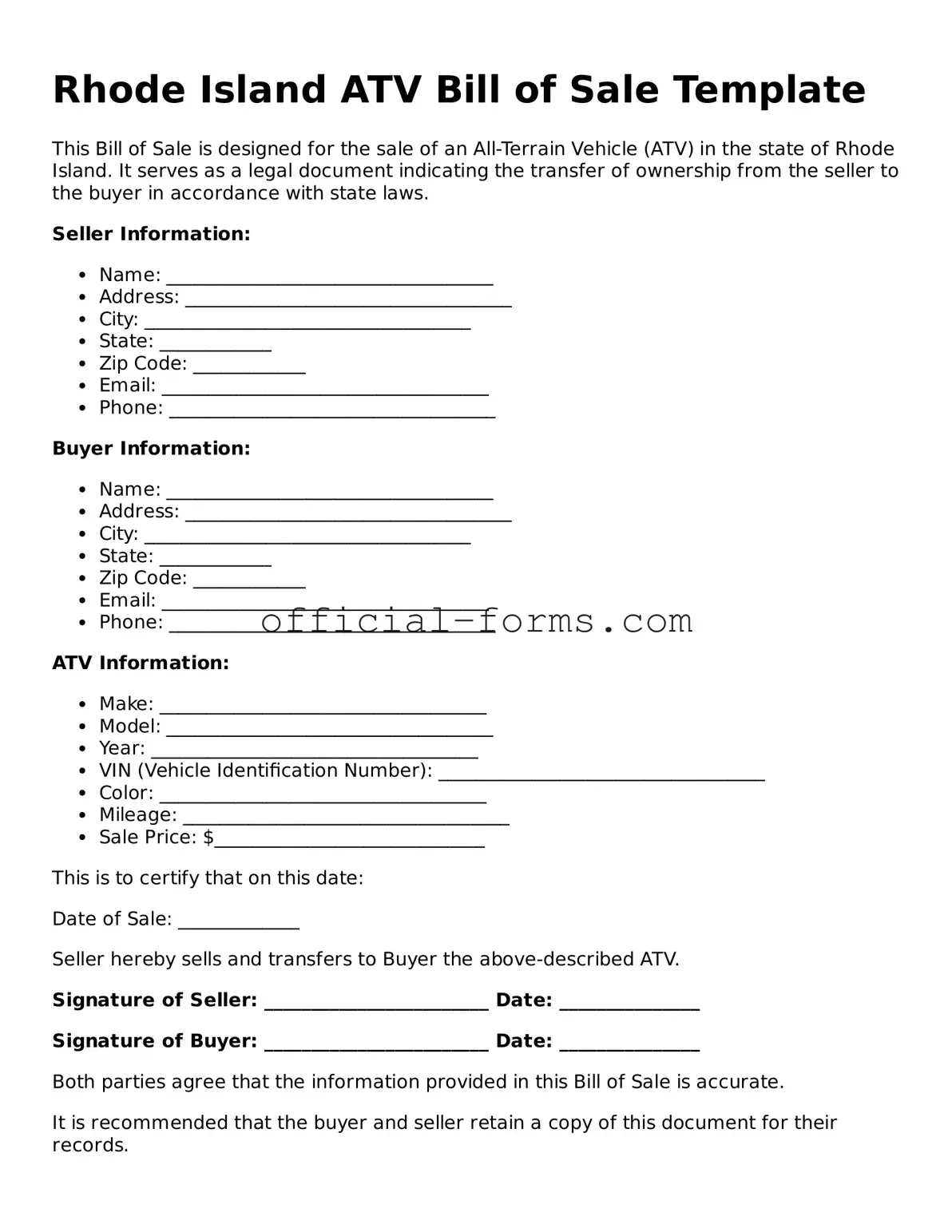Official Rhode Island ATV Bill of Sale Document
The Rhode Island ATV Bill of Sale form is a crucial document that records the transfer of ownership of an all-terrain vehicle. This form provides both the buyer and seller with essential details about the transaction, ensuring that all necessary information is documented. Understanding how to properly complete this form can help facilitate a smooth transfer and protect the rights of both parties involved.
Open My ATV Bill of Sale Now

Official Rhode Island ATV Bill of Sale Document
Open My ATV Bill of Sale Now
Don’t leave your form incomplete
Finish ATV Bill of Sale online quickly from start to download.
Open My ATV Bill of Sale Now
or
➤ PDF
